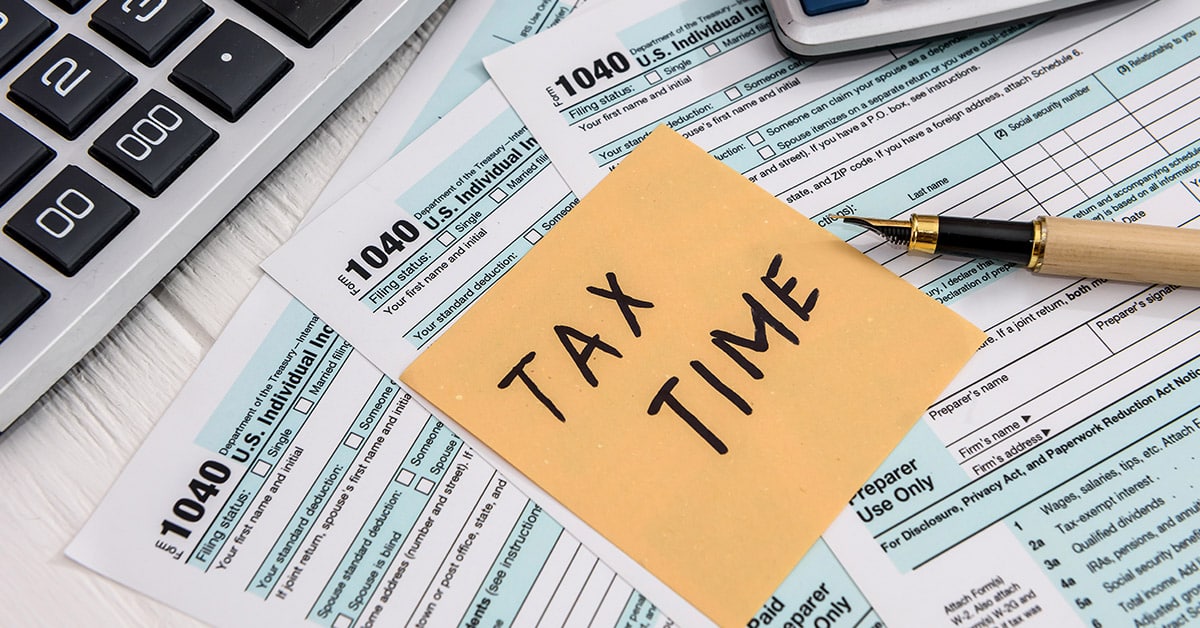Preparing for tax time is an important task whether you’re doing your own returns or handing them off to a tax professional. The federal tax code changes frequently and it can be difficult to keep up. And then there’s all the paperwork and math. But tax time doesn’t have to be so stressful.
With planning, organization and advice from experienced tax professionals, you can reduce the frustration of tax prep and maybe even reduce your tax liability. We’ve collected a set of articles, IRS resources and other information to help you manage the tax implications of aging and caregiving.
5 Blog Articles to Help You Do Your Taxes
Here are 5 blog posts that answer common tax questions and may help you take advantage of every opportunity to reduce your tax liability. Always consult a tax professional for definitive advice.
1. General Tax Preparation Tips for Seniors and Family Caregivers
The best way to avoid a nasty surprise on your tax return – or a terse letter from the IRS – is to estimate what’s owed so you can make smart decisions about cash flow and take steps to qualify for more deductions and credits. But you may have questions about how to do that. Should I prepare the return myself or get professional support? What information do I need to make tax prep easier and more accurate? How do I file for an IRS extension? Get answers here.
2. Are medical alert devices deductible?
IRS guidelines don’t expressly mention medical alert systems like Lifeline, but your system might be deductible depending on your circumstances. Learn more.
3. Can I claim my elderly parent as a dependent?
To qualify for tax breaks for family caregivers, you first need to determine whether you can claim your loved one as a dependent. Once that’s established, you may qualify for deductions for elderly parent care and a dependent care tax credit. Find out how.
4. How do I benefit from the tax breaks for family caregivers?
The costs of caring for an aging loved one add up quickly. The amounts covered by Medicare or insurance coverage can be lower than expected, and the ongoing expenses associated with managing a chronic condition are often higher than we estimate. Luckily, there are tax breaks for family caregivers that may potentially reduce the financial burden of care. See how to get them.
5. What medical equipment is deductible and do I qualify?
Wondering if it’s worth claiming medical expenses for equipment on your taxes? The answer is yes! Researching deductions for medical equipment used by yourself, your spouse or another person in your care is worth the effort because, if you itemize, you may be able to reduce your tax bill.
Equipment from false teeth to oxygen tanks is on the IRS’ list of approved expenses. Check out the opportunities.
IRS Tax Tips for Family Caregivers
The IRS website is the definitive source for advice on federal requirements for dependents, tax credits and deductions. We recommend reviewing these publications for more information on eligibility and requirements:
- Dependents, Standard Deduction & Filing Information: IRS Publication 501
- Medical & Dental Expenses: IRS Publication 502
- Child & Dependent Care Expenses: IRS Publication 503
You can get free tax prep assistance from the IRS, too. Learn more about doing your federal return online for free directly on the IRS site. Get tax prep support for certain individuals from IRS-approved experts at no charge. Find more about free tax help.
Financial Tips for Family Caregivers and Seniors
Taxes are only part of the financial equation. We’ve got a library full of articles covering topics related to the financial aspects of aging and caregiving:
———-
This information is not intended as a substitute for professional financial, accounting, tax or legal consultation; it is provided “as is” without any representations or warranties, express or implied. Always consult professionals when you have specific questions about any financial matter.




